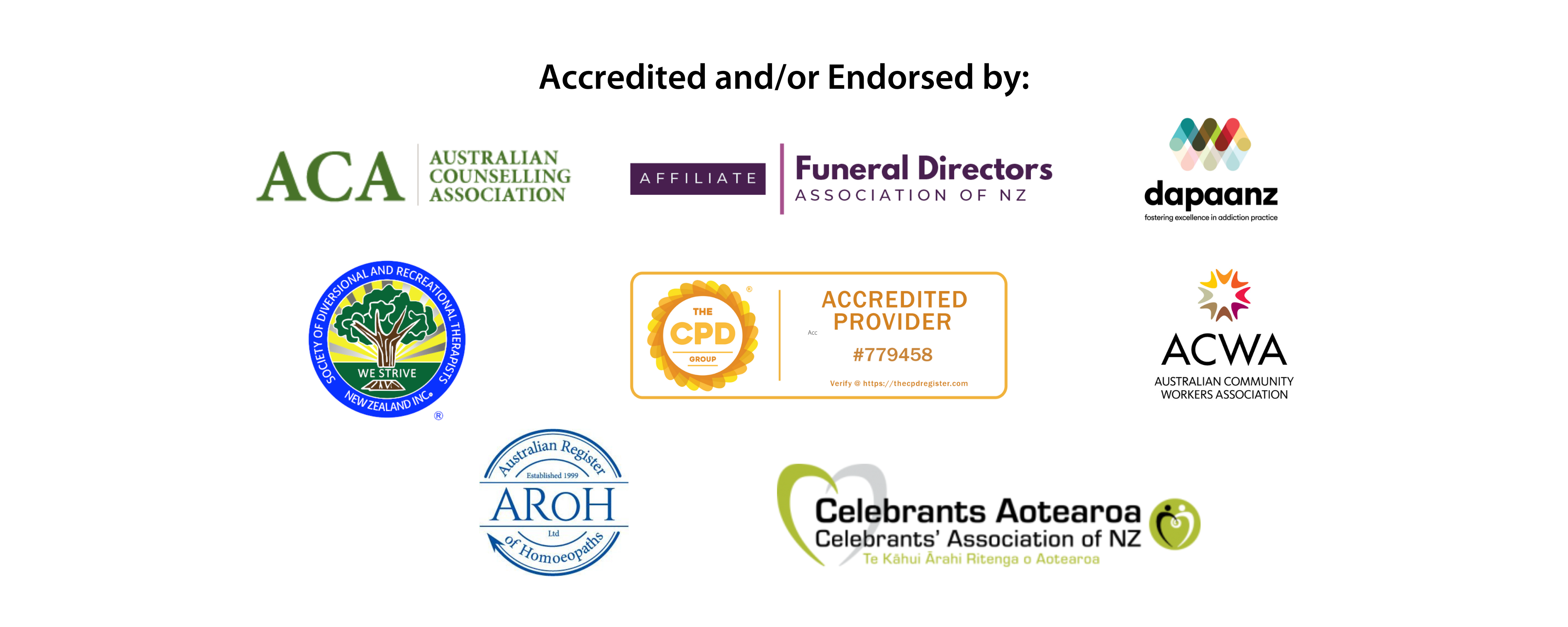Who should attend this webinar?
Anyone who works in a professional care role or supports people through all forms of loss and grief. Our content is applicable to a wide variety of professions including counsellors, social workers, teachers, emergency response teams, medical, corrections, mental health, hospice, volunteers, caregivers and more.
This webinar is suitable for anyone reflecting on ageing well. It will be particularly valuable for therapists and health professionals working with older adults.
Overview
There is considerable diversity in the experiences and meaning of ageing in developed countries, including Aotearoa. Although old age is venerated by Māori and other collectivist cultures, in Westernised groups, the attributes of youth and health are typically associated with success, and older people become increasingly invisible and pathologised. Older people are likely to have internalised ageist views and, therefore, may also interpret the challenges of ageing as a type of failure.
In Westernised societies, death continues to be hidden for the most part. Therefore, people may enter older age with limited or no preparation for the ever-increasing number of losses they will face. People may be surprised to find they are old and may grapple with feeling under-resourced to live well. Life can become contracted with the loss of significant friends.
In this session, we draw from Erik Erikson’s eighth stage of development – integrity versus despair and Joan Erikson’s contribution of a ninth stage. The ninth stage emphasises the importance of facing despair with faith and humility and the potential for transcendence. The ninth stage considers new challenges experienced with continued aging and incorporates aspects from all previous eight stages of psychosocial development.
We also draw from gerotranscendence, coined by gerontologist Lars Tornstam, which represents a greater awareness of one's own life and connection to the universe, increased ties to the past, and a positive, transcendent perspective about life.
Key learning points
- Reflect on societal ageism and internalised ageism
- Consider how societal ageism and internalised ageism reinforce each other and impact anticipatory grief and a sense of self
- Consider how one’s own internalised ageism may result in paternalism, impacting communication, advice and expectations of older people
- Identify ways older adults might experience later life developmental stages
- Critique aspects of communal aged care living that promote people being seen and treated as fully human at all stages of life
- Consider ways to richly personalise care plans in aged care to support a sense of connection to self and life history
- Reflect on staff interventions that demonstrate that they have grasped the significance of what is meaningful to the older person and their family
Webinar registration details
- Access to the live two-hour webinar
- Access to the webinar recording for 30 days
- Access to a downloadable PDF handout
- Certificate of accomplishment issued on completion of a short quiz for CPD/OPD points
- NOTE: Webinar times are shown in NZST or NZDT. If you're joining us from Australia, please use a time-zone converter to see the live time in your state.
Certificate of accomplishment
We can provide a certificate of accomplishment for all our training courses. The requirement for receiving a certificate to confirm professional development is as follows:
- You must view a minimum of 80% of a live-presented webinar workshop or
- You must view a minimum of 80% of a recorded webinar workshop
- You must complete a short quiz on the webinar content
CPD points/credits
We are accredited to provide points/credits to the following organisations, educational institutes, and associations:
New Zealand
FDANZ
NZEA
NZIFH
Australia
AROH
Our training is endorsed or recommended by the following organisations, educational institutes, and associations:
New Zealand
NZAC
DAPAANZ
CANZ
NZSDRT
The CPD Group
Australia
ACWA
ACA (Australian Counselling Association)
To receive your CPD points/credits, you will need to receive a certificate of accomplishment which you can then provide to your relevant institution.
 less
less


